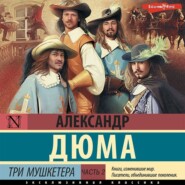По всем вопросам обращайтесь на: info@litportal.ru
(©) 2003-2024.
✖
Vaninka
Настройки чтения
Размер шрифта
Высота строк
Поля
Such tidings fell like a thunderbolt upon the old warrior, already embittered by his reverses: he was heart-broken that such storm-clouds should tarnish the end of his glorious day.
In consequence of this order, he assembled all his officers in the market-place of Riga, and took leave of them sorrowfully, like a father taking leave of his family. Having embraced the generals and colonels, and having shaken hands with the others, he said good-bye to them once more, and left them free to continue their march to their destination.
Souvarow took a sledge, and, travelling night and day, arrived incognito in the capital, which he was to have entered in triumph, and was driven to a distant suburb, to the house of one of his nieces, where he died of a broken heart fifteen days afterwards.
On his own account, Foedor travelled almost as rapidly as his general, and entered St. Petersburg without having sent any letter to announce his arrival. As he had no parent in the capital, and as his entire existence was concentrated in one person, he drove direct to the general’s house, which was situated in the Prospect of Niewski, at an angle of the Catherine Canal.
Having arrived there, he sprang out of his carriage, entered the courtyard, and bounded up the steps. He opened the ante-chamber door, and precipitated himself into the midst of the servants and subordinate household officers. They cried out with surprise upon seeing him: he asked them where the general was; they replied by pointing to the door of the dining-room; he was in there, breakfasting with his daughter.
Then, through a strange reaction, Foedor felt his knees failing him, and he was obliged to lean against a wall to prevent himself from falling. At this moment, when he was about to see Vaninka again, this soul of his soul, for whom alone he had done so much, he dreaded lest he should not find her the same as when he had left her. Suddenly the dining-room door opened, and Vaninka appeared. Seeing the young man, she uttered a cry, and, turning to the general, said, “Father, it is Foedor”; and the expression of her voice left no doubt of the sentiment which inspired it.
“Foedor!” cried the general, springing forward and holding out his arms.
Foedor did not know whether to throw himself at the feet of Vaninka or into the arms of her father. He felt that his first recognition ought to be devoted to respect and gratitude, and threw himself into the general’s arms. Had he acted otherwise, it would have been an avowal of his love, and he had no right to avow this love till he knew that it was reciprocated.
Foedor then turned, and as at parting, sank on his knee before Vaninka; but a moment had sufficed for the haughty girl to banish the feeling she had shown. The blush which had suffused her cheek had disappeared, and she had become again cold and haughty like an alabaster statue-a masterpiece of pride begun by nature and finished by education. Foedor kissed her hand; it was trembling but cold he felt his heart sink, and thought he was about to die.
“Why, Vaninka,” said the general – “why are you so cool to a friend who has caused us so much anxiety and yet so much pleasure? Come, Fordor, kiss my daughter.”
Foedor rose entreatingly, but waited motionless, that another permission might confirm that of the general.
“Did you not hear my father?” said Vaninka, smiling, but nevertheless possessing sufficient self-control to prevent the emotion she was feeling from appearing in her voice.
Foedor stooped to kiss Vaninka, and as he held her hands it seemed to him that she lightly pressed his own with a nervous, involuntary movement. A feeble cry of joy nearly escaped him, when, suddenly looking at Vaninka, he was astonished at her pallor: her lips were as white as death.
The general made Foedor sit down at the table: Vaninka took her place again, and as by chance she was seated with her back to the light, the general noticed nothing.
Breakfast passed in relating and listening to an account of this strange campaign which began under the burning sun of Italy and ended in the glaciers of Switzerland. As there are no journals in St. Petersburg which publish anything other than that which is permitted by the emperor, Souvarow’s successes were spread abroad, but his reverses were ignored. Foedor described the former with modesty and the latter with frankness.
One can imagine, the immense interest the general took in Foedor’s story. His two captain’s epaulets and the decorations on his breast proved that the young man had modestly suppressed his own part in the story he had told. But the general, too courageous to fear that he might share in Souvarow’s disgrace, had already visited the dying field-marshal, and had heard from him an account of his young protege’s bravery. Therefore, when Foedor had finished his story, it was the general’s turn to enumerate all the fine things Foedor had done in a campaign of less than a year. Having finished this enumeration, he added that he intended next day to ask the emperor’s permission to take the young captain for his aide-de-camp. Foedor hearing this wished to throw himself at the general’s feet, but he received him again in his arms, and to show Foedor how certain he was that he would be successful in his request, he fixed the rooms that the young man was to occupy in the house at once.
The next day the general returned from the palace of St. Michel with the pleasant news that his request had been granted.
Foedor was overwhelmed with joy: from this time he was to form part of the general’s family. Living under the same roof as Vaninka, seeing her constantly, meeting her frequently in the rooms, seeing her pass like an apparition at the end of a corridor, finding himself twice a day at the same table with her, all this was more than Foedor had ever dared hope, and he thought for a time that he had attained complete happiness.
For her part, Vaninka, although she was so proud, at the bottom of her heart took a keen interest in Foedor. He had left her with the certainty that he loved her, and during his absence her woman’s pride had been gratified by the glory he had acquired, in the hope of bridging the distance which separated them. So that, when she saw him return with this distance between them lessened, she felt by the beating of her heart that gratified pride was changing into a more tender sentiment, and that for her part she loved Foedor as much as it was possible for her to love anyone.
She had nevertheless concealed these feelings under an appearance of haughty indifference, for Vaninka was made so: she intended to let Foedor know some day that she loved him, but until the time came when it pleased her to reveal it, she did not wish the young man to discover her love. Things went on in this way for several months, and the circumstances which had at first appeared to Foedor as the height of happiness soon became awful torture.
To love and to feel his heart ever on the point of avowing its love, to be from morning till night in the company of the beloved one, to meet her hand at the table, to touch her dress in a narrow corridor, to feel her leaning on his arm when they entered a salon or left a ballroom, always to have ceaselessly to control every word, look, or movement which might betray his feelings, no human power could endure such a struggle.
Vaninka saw that Foedor could not keep his secret much longer, and determined to anticipate the avowal which she saw every moment on the point of escaping his heart.
One day when they were alone, and she saw the hopeless efforts the young man was making to hide his feelings from her, she went straight up to him, and, looking at him fixedly, said:
“You love me!”
“Forgive me, forgive me,” cried the young man, clasping his hands.
“Why should you ask me to forgive you, Foedor? Is not your love genuine?”
“Yes, yes, genuine but hopeless.”
“Why hopeless? Does not my father love you as a son?” said Vaninka.
“Oh, what do you mean?” cried Foedor. “Do you mean that if your father will bestow your hand upon me, that you will then consent – ?”
“Are you not both noble in heart and by birth, Foedor? You are not wealthy, it is true, but then I am rich enough for both.”
“Then I am not indifferent to you?”
“I at least prefer you to anyone else I have met.”
“Vaninka!” The young girl drew herself away proudly.
“Forgive me!” said Foedor. “What am I doing? You have but to order: I have no wish apart from you. I dread lest I shall offend you. Tell me what to do, and I will obey.”
“The first thing you must do, Foedor, is to ask my father’s consent.”
“So you will allow me to take this step?”
“Yes, but on one condition.”
“What is it? Tell me.”
“My father, whatever his answer, must never know that I have consented to your making this application to him; no one must know that you are following my instructions; the world must remain ignorant of the confession I have just made to you; and, lastly, you must not ask me, whatever happens, to help you in any other way than with my good wishes.”
“Whatever you please. I will do everything you wish me to do. Do you not grant me a thousand times more than I dared hope, and if your father refuses me, do I not know myself that you are sharing my grief?” cried Foedor.
“Yes; but that will not happen, I hope,” said Vaninka, holding out her hand to the young officer, who kissed it passionately.
“Now be hopeful and take courage;” and Vaninka retired, leaving the young man a hundred times more agitated and moved than she was herself, woman though she was.
The same day Foedor asked for an interview with the general. The general received his aide-de-camp as usual with a genial and smiling countenance, but with the first words Foedor uttered his face darkened. However, when he heard the young man’s description of the love, so true, constant, and passionate, that he felt for Vaninka, and when he heard that this passion had been the motive power of those glorious deeds he had praised so often, he held out his hand to Foedor, almost as moved as the young soldier.
And then the general told him, that while he had been away, and ignorant of his love for Vaninka, in whom he had observed no trace of its being reciprocated, he had, at the emperor’s desire, promised her hand to the son of a privy councillor. The only stipulation that the general had made was, that he should not be separated from his daughter until she had attained the age of eighteen. Vaninka had only five months more to spend under her father’s roof. Nothing more could be said: in Russia the emperor’s wish is an order, and from the moment that it is expressed, no subject would oppose it, even in thought. However, the refusal had imprinted such despair on the young man’s face, that the general, touched by his silent and resigned sorrow, held out his arms to him. Foedor flung himself into them with loud sobs.
Then the general questioned him about his daughter, and Foedor answered, as he had promised, that Vaninka was ignorant of everything, and that the proposal came from him alone, without her knowledge. This assurance calmed the general: he had feared that he was making two people wretched.
At dinner-time Vaninka came downstairs and found her father alone. Foedor had not enough courage to be present at the meal and to meet her again, just when he had lost all hope: he had taken a sleigh, and driven out to the outskirts of the city.
During the whole time dinner lasted Vaninka and the general hardly exchanged a word, but although this silence was so expressive, Vaninka controlled her face with her usual power, and the general alone appeared sad and dejected.
That evening, just when Vaninka was going downstairs, tea was brought to her room, with the message that the general was fatigued and had retired. Vaninka asked some questions about the nature of his indisposition, and finding that it was not serious, she told the servant who had brought her the message to ask her father to send for her if he wanted anything. The general sent to say that he thanked her, but he only required quiet and rest. Vaninka announced that she would retire also, and the servant withdrew.
Hardly had he left the room when Vaninka ordered Annouschka, her foster-sister, who acted as her maid, to be on the watch for Foedor’s return, and to let her know as soon as he came in.
At eleven o’clock the gate of the mansion opened: Foedor got out of his sleigh, and immediately went up to his room. He threw himself upon a sofa, overwhelmed by his thoughts. About midnight he heard someone tapping at the door: much astonished, he got up and opened it. It was Annouschka, who came with a message from her mistress, that Vaninka wished to see him immediately. Although he was astonished at this message, which he was far from expecting, Foedor obeyed.

















